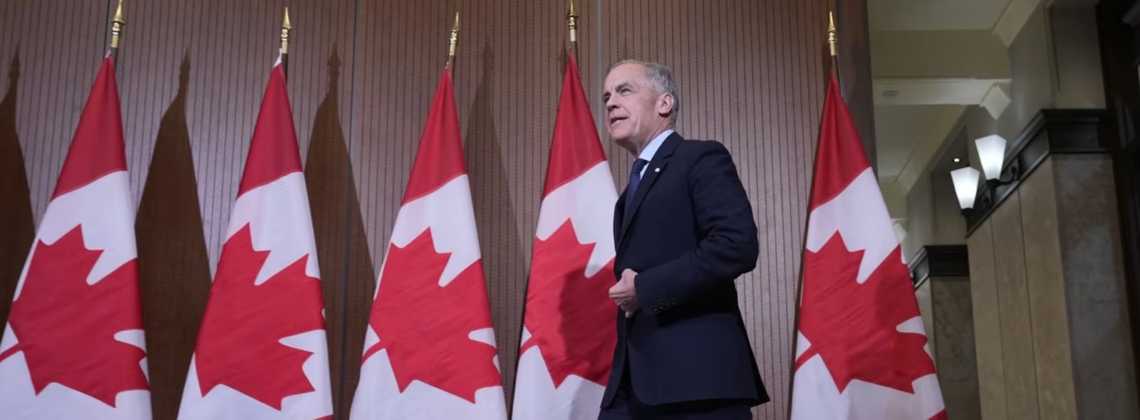

✍️ By Renjie Butalid.
Renjie is Co-founder and Director of the Montreal AI Ethics Institute (MAIEI) and Vice President, Business Development at Metrika. Previously, he served as Associate Director of the Dobson Centre for Entrepreneurship, McGill University.
With the appointment of Evan Solomon as Canada’s first Minister of AI and Digital Innovation, Prime Minister Mark Carney has signaled a generational shift in how Canada approaches technology governance.
In his single government mandate letter, PM Carney writes:
“The combination of the scale of this infrastructure build and the transformative nature of artificial intelligence (AI) will create opportunities for millions of Canadians to find new rewarding careers – provided they have timely access to the education and training they need to develop the necessary skills.”
This statement highlights a pivotal truth: AI’s promise will only be realized if it is matched with accessible public investment in literacy, civic competence, and equitable opportunity. As Kate Arthur recently emphasized, literacy has always been the foundation of human progress, and in the age of AI, it must evolve to include the ability to engage ethically and critically with intelligent systems. Canada urgently needs a national AI literacy strategy that is anchored in civic values and integrated across the education system, from K–12 to workforce retraining.
The Canada as a Champion for Public AI working draft paper offers a compelling case: Canada should not try to outcompete tech superpowers on their terms, but instead help change the game. The authors argue: “Current AI models and products are predominantly built by a very small number of actors within only two incentive systems and political contexts, namely (1) big tech, centred in Silicon Valley and (2) China,” undermining democratic control and limiting public benefit. Instead of competing directly, Canada can lead by building and stewarding public AI infrastructure, including open compute, open source software, and democratically governed data systems.
The paper calls for a third option: “Public AI,” a geographically distributed, publicly oriented AI ecosystem rooted in shared public goods and international collaboration. Canada’s strengths in AI research, clean energy, and coalition-building position it well to drive this effort. Without such investments, the paper warns, nations like Canada risk becoming consumers, not producers, of AI technologies shaped by foreign commercial interests.
Imogen Parker from the Ada Lovelace Institute adds another layer: public legitimacy for AI isn’t optional. If the public doesn’t trust how AI is being used, particularly in high-stakes public services like healthcare or education, then deployment risks undermining both efficacy and democracy.
Three Questions for Canada’s New AI Ministry
In light of this, the question is no longer whether Canada should lead on AI, but how it will lead, and for whom.
As the new Ministry takes shape, we believe its success will depend on how it addresses three foundational challenges. At the Montreal AI Ethics Institute, we’ve framed these as key questions, each paired with concrete recommendations to ensure the Ministry delivers not only innovation but also inclusion, accountability, and trust.
🔹 1. Will this new Ministry prioritize AI literacy, equity, and civic participation, or default to GDP metrics and private-sector partnerships?
Recommendation:
Establish an independent Office for Public AI Literacy within the Ministry to ensure civic capacity keeps pace with technical progress. Embed AI literacy across provincial curricula in collaboration with educators, labor unions, and civil society. Allocate dedicated funding to support community-led training initiatives, particularly for underserved groups.
But this isn’t just about digital fluency. AI literacy means knowing how to interrogate a system, understand what it can and can’t do, and identify what matters. Citizens must be equipped with the skills to extract relevant information, evaluate outputs, and recognize when systems reflect—or distort—real-world priorities.
From understanding how an algorithm makes a decision to developing informed opinions on whether that decision should be made by a machine at all, AI literacy is the foundation of democratic oversight in the AI era.
🔹 2. How will it engage Indigenous communities, youth, and underserved populations?
Recommendation:
Co-develop national AI policies with Indigenous communities, youth leaders, and marginalized groups, ensuring that those most affected by AI systems have a voice in shaping them. Fund Indigenous data sovereignty frameworks and support youth-led participatory design labs that foster agency, digital skills, and civic imagination.
But inclusion isn’t just about consultation, it’s about building long-term pathways for collaboration. The Ministry should act as a connector across communities: creating spaces where Indigenous knowledge systems, youth innovation, and local civic efforts can learn from one another and shape AI governance together.
This also means expanding access across the lifespan, recognizing that AI literacy and digital inclusion are not just educational concerns for youth, but civic and social imperatives at every stage of life.
This includes:
- K–12 learners, who need early exposure to the ethical and societal dimensions of AI, not just its technical aspects;
- Mid-career workers, who must be supported through upskilling and retraining programs to navigate evolving labor markets and avoid displacement;
- And older adults, who are often left out of digital inclusion strategies, yet increasingly interact with AI-driven systems in critical areas such as healthcare, housing, transportation, and social services.
AI governance must not only serve diverse populations, it must be built with them. Canada has the opportunity to lead by embedding equity, not as an add-on, but as the foundation.
🔹 3. Can it operationalize trust, transparency, and safety without stifling open innovation?
Recommendation:
Canada shouldn’t reinvent the wheel. Instead, we should build on existing public-sector frameworks, voluntary standards, and national strategies already in motion, including, but not limited to:
- The Directive on Automated Decision-Making from the Treasury Board of Canada Secretariat;
- CAN-CIOSC 101: Ethical Design and Use of Automated Decision Systems from the Standards Council of Canada;
- Cybersecurity guidance for AI and machine learning from the Canadian Centre for Cyber Security;
- The Pan-Canadian Artificial Intelligence Strategy led by ISED and CIFAR.
These initiatives already provide a strong foundation for trustworthy AI. What’s needed now is expansion, harmonization, and implementation, working across government and society to put these frameworks into practice. This includes collaboration with the Office of the Privacy Commissioner, the Standards Council of Canada, and citizen assemblies to create a federated AI accountability framework that is explainable, inclusive, and innovation-friendly.
The challenge is no longer what to build, but how to operationalize what already exists.
The Council of Canadian Innovators has called for a strategic innovation strategy that prioritizes Canadian IP, digital sovereignty, and commercialization readiness. But to truly lead, Canada must also integrate the insights of civic institutions, public educators, and ethics communities, and not just tech incumbents and economic stakeholders. This is a defining moment to articulate a national digital infrastructure strategy, one that integrates AI, digital ID, and the trust frameworks required to support both, as recently outlined in The Globe & Mail.
The Ministry’s real legacy will not be measured in patents or platforms, but in whether all Canadians, not just a few, are empowered to participate meaningfully in shaping the future of AI. At MAIEI, we would welcome the opportunity to support this work, whether through knowledge mobilization, policy translation, or public engagement strategies that help make complex AI policy more accessible and actionable for policymakers, educators, and communities across the country.
